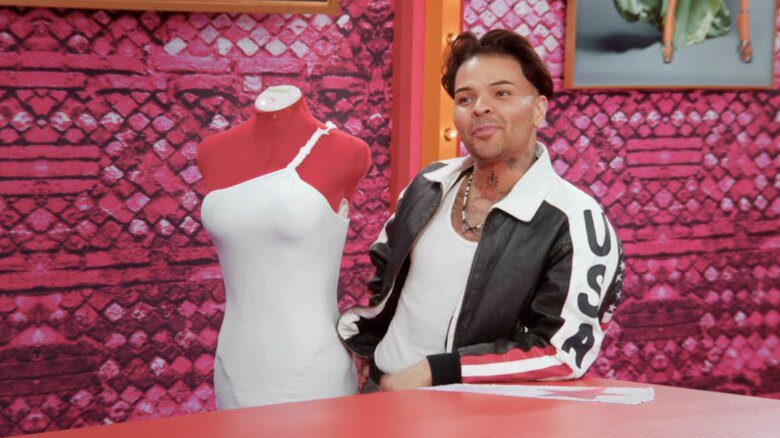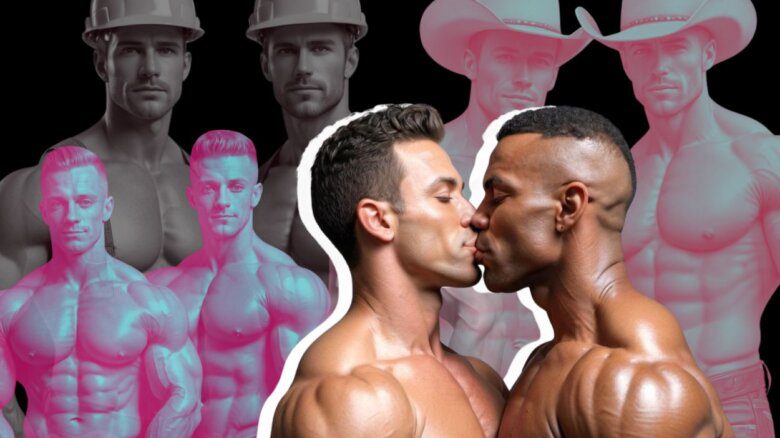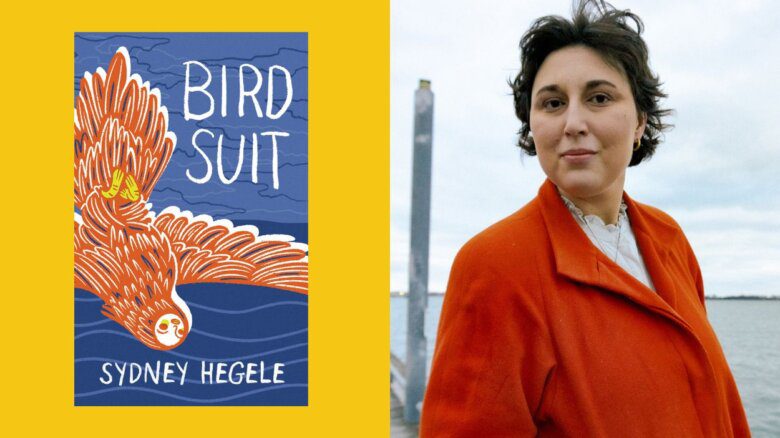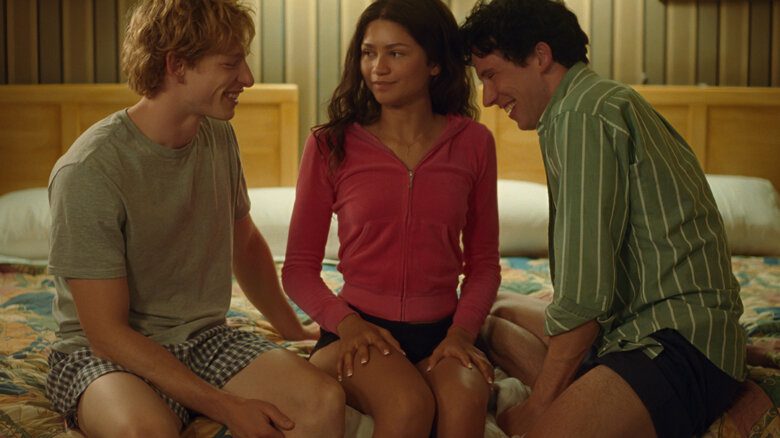Theda Hammel has done it all. Over the years, the multi-hyphenate has worked in theatre performance, sound design, editing and music, among other mediums. Her podcast with co-host Macy Rodman, Nymphowars, has gained a cult following. In 2022, her first TV pilot, My Trip to Spain, screened at Sundance and the Tribeca Film Festival. This year, Hammel took her ambitions to new heights with her feature film debut, Stress Positions.
Set in Brooklyn during the early days of the COVID-19 pandemic, Stress Positions follows anxiety-ridden, unemployed divorcee Terry (John Early) as he tends tends to his 19-year-old Moroccan-American model nephew Bahlul (Qaher Harhash), who is recovering from a broken leg. To Terry’s dismay, everyone he knows seems to want to come over for a visit—from his friend Karla (Hammel) and her girlfriend Vanessa (Amy Zimmer), to his mysterious older neighbour Coco (Rebecca F. Wright) and toxic ex-husband Leo (John Roberts). These visits don’t go well. One by one, the interlopers manage to project xenophobic misconceptions about Moroccans onto Bahul.
In Stress Positions, Hammel paints a raw portrait of millennial patheticism and the umbrella of mania, xenophobia, discomfort and identity. A little bit of Billy Wilder and a little bit of Spike Lee, Hammel’s first feature wears its heavy-handed messages on its sleeves, yet nails it with poignancy and classic screwball silliness.
Xtra chatted with Hammel about scouting for the perfect house for chaos, millennial loserdom, and the Cary Grant movies that influenced her characters.
Since all this drama takes place within Terry’s apartment, as a fellow Brooklynite, I must ask: Where was this house? Did it take long to scout it and set it up?
The place was in Bed-Stuy on Hancock Street. It was a lengthy scout, but it was just because we didn’t have a proper location scout. Our producer, Allie Compton, was trying to lock down one of these townhouses. There are many of them, and the layout is all essentially the same, which is very helpful. You could write for the three stories, for the yard and the stoop, and you knew that all these things would be in place because the houses in that area are sort of templated. But this one came through right at the last minute, and I couldn’t have asked for a better location. It had a grandeur to it, but it was also in striking disrepair, so it really worked for us.
All of your characters are out, and comfortable in their queer identities—but they’re nonetheless flawed people with regressive mindsets. Watching them, I kept thinking of the post-9/11 xenophobia so many millennials grew up steeped in. The characters seem to be affected by that racism. How did you craft them to show their flaws, while maintaining their humanity?
For [American] millennials to have the “war on terror” happening over the course of puberty or young adulthood, for them to have their youth overseen by an extremely racist, chauvinist, deceitful administration—that creates a psychological model that lingers even after the stage at which you rebel against it.
The movie suggests that maybe the architecture of those years is not removed. It hasn’t been eliminated. That really shapes these people’s framework. I wish to keep things dramatically alive for the course of the movie and give the actors something to play other than outright villainy.
Yeah. Because for most of the movie, Bahul is in a war with his mom’s negative perception of Terry. In the past, we learn, she called Terry evil for being gay. Yet I still think about Bahul’s voiceover of realization toward the finale, in which he says, “My mama is wrong about you, Uncle Terry. You’re not evil. You’re just a loser.” When he said that, I was like, “Ooh, PAIN. Civilizations were burned.”
It’s important that there is a third option between hero and villain—and that’s loser. I do think that enough time has passed, enough has been put on the record now that we can identify millennials as being, broadly speaking, losers—or at least American millennials. And that’s not what you necessarily want to be, but it’s more accurate than saying millennials are a bunch of villains.
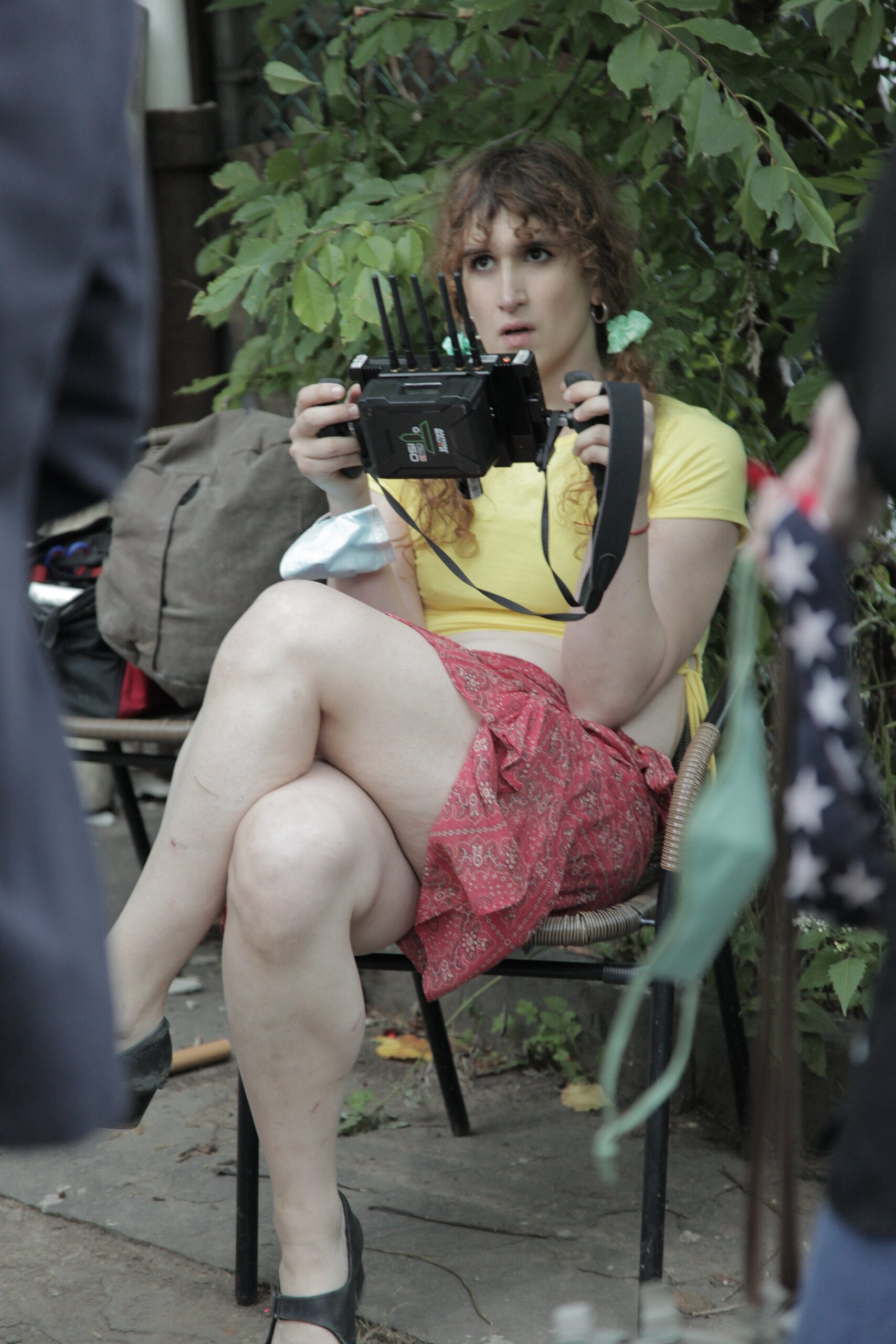
Theda Hammel on set Credit: Courtesy of NEON
What made you want to lean into screwball comedy in this script?
I just think that screwball comedy is a very complex form, and it’s able to take on a lot of serious issues without seeming to do so. During the golden age of screwball comedy, there were a lot more things considered socially taboo that today we wouldn’t bat an eye at—like sex before marriage, for example. We no longer have a social prohibition on sex before marriage. But these liberal characters have a great many social prohibitions that are easily identifiable having to do with wanting to be tolerant and respectful. The tension in the movie comes from the fact that they actually don’t know how to listen or pay attention or actually engage with someone who is otherized.
They all have this tension that is sort of comedic and maybe a little bit pathetic and maybe tragic where they don’t quite know how to relate to Bahul. A lot of Terry’s comedic tension, for example, comes from him trying never actually to say anything provocative or inflammatory and trying to be the perfect housewife, basically, which Bahul kind of thinks of as being a little obnoxious.
Speaking of Terry, where did you draw inspiration from his character? Because I kept seeing so much of Cary Grant.
Two characters actually drew off of Cary Grant performances. Karla, the character I play, is very drawn from Cary Grant in His Girl Friday, The Awful Truth or any movie where he plays a sort of mischievous saboteur. But John [Early] is more like Cary Grant in Bringing Up Baby. He’s a nerd, somebody for whom life just kind of doesn’t make any sense. So [Early and I] drew from both sides of Cary Grant there. Neither of us achieves his charm, exquisite cinematic beauty or class. But I think the movie is trying to draw on the screwball dynamic in a way that is maybe a little novel.
Your characters all live in sort of a psychological entrapment. There’s an extra layer with the pandemic backdrop. Was it always going to be set during the pandemic lockdown?
There are a few ways that COVID-19 works in the movie. For younger millennials like me, the start of our youth was bracketed by a world historical event in the form of 9/11, at least in the U.S. And then it closes pretty definitively with COVID-19 in 2020. As soon as the world opened back up again, it was very clear going out onto the street that the street does not belong to you anymore. It belongs to this new generation that has come of age. This isn’t the movie about Gen Z, per se, just about the young versus the old or the aging.
The second thing is just that the pandemic is a very good metaphor for these fears of moral contamination—or a fear of the outside world or a fear of the “other.” When COVID hit the world, it was a global event, and it was really a form of the world coming to call. It was like the world, which usually you have at an arm’s distance, is suddenly in your face. It’s everywhere, and everyone is dealing with it at the same time. And the responsible thing to do in that moment is to lock yourself up in your home and to not engage with the world and to make sure there’s at least seven layers of distance between yourself and anybody else. And I do think that finding safety in that way by separating oneself from the world and avoiding all contact with everybody else, I think it is a good metaphor for this temperament that is so withdrawn and so antisocial and so afraid of any encounter with otherness. And so it works that way for Terry, certainly in this movie. And then, finally, what I would just say is that without the pandemic, there’s no reason that these two characters would ever spend any time together at all. They’re so incompatible with each other. So in that sense, it’s a convenient device.
Stress Positions is in U.S. theatres nationwide.
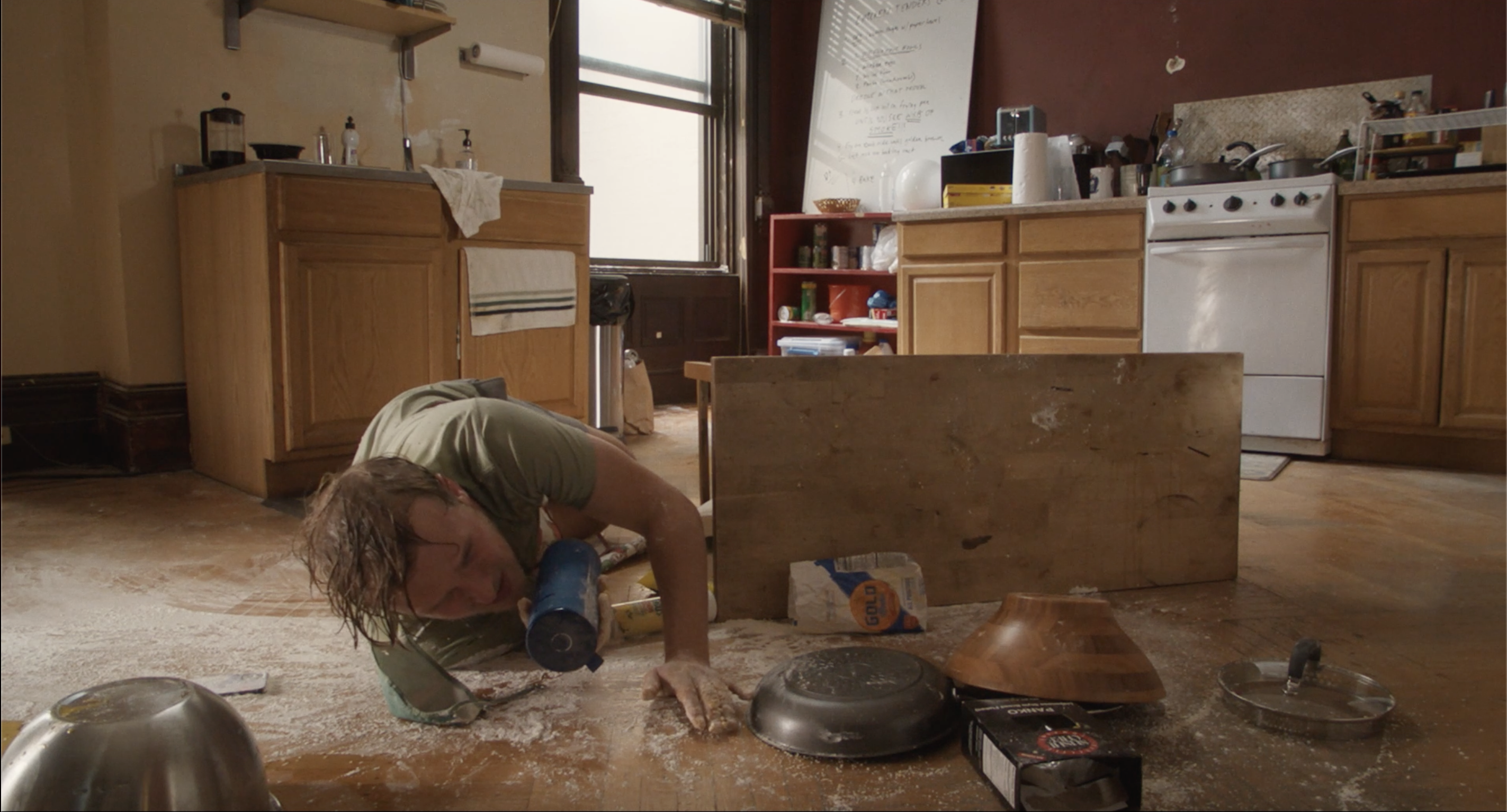

 Why you can trust Xtra
Why you can trust Xtra